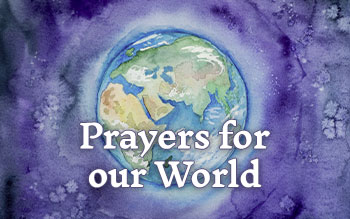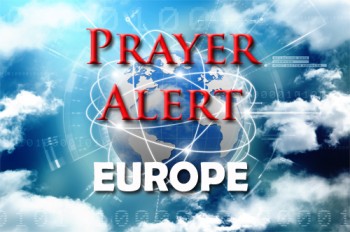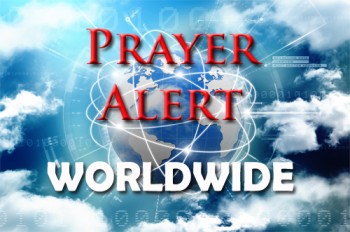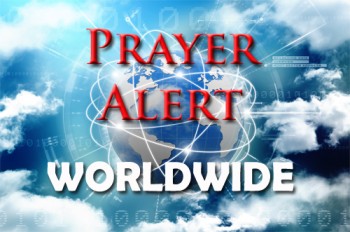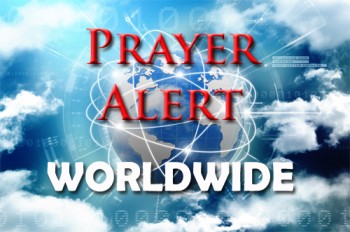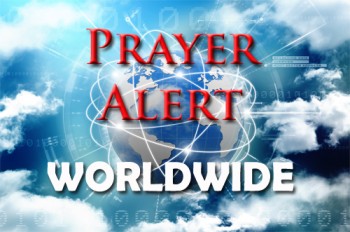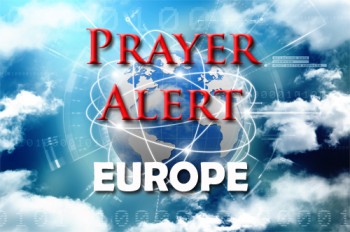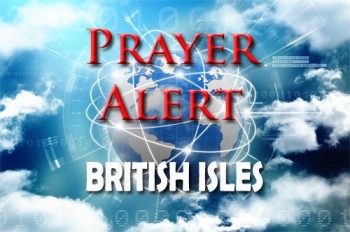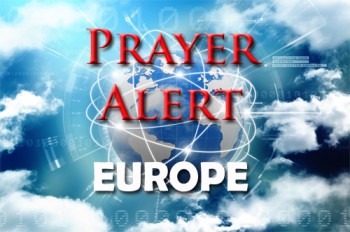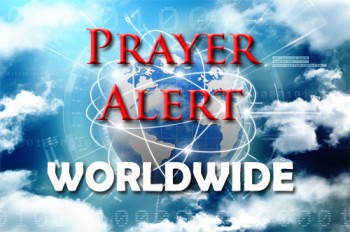Displaying items by tag: protests
Iraq: 220 killed in violence despite curfew
Iraq protests:
There has been an upsurge of violence in Iraq as anti-government protests enter a fifth day, amid reports of bloodshed in the holy city of Karbala.
Reports say up to 18 people were shot dead by security forces there. However, officials denied anyone was killed.
In the capital, Baghdad, thousands of protesters have defied a curfew to demand jobs, better public services and an end to corruption.
Prime Minister Adel Abdul Mahdi is under growing pressure to resign.
On Tuesday the influential Iraqi Shia cleric Moqtada Sadr said he would join forces with another powerful politician, Hadi al-Ameri, to bring Mr Abdul Mahdi down through a vote of no confidence.
More than 220 people have died across the country since anti-government demonstrations broke out at the beginning of the month. A first wave of protests gave way to a brief lull, but fresh unrest began five days ago.
What happened in Karbala?
In Karbala - a major centre for Shia Islam - the situation remains unclear, but a number of medical sources and eyewitnesses, backed up by video footage, suggest at least 18 people were killed and hundreds wounded in clashes with the security forces.
Rupert Colville, the spokesman for the office of the UN High Commissioner for Human Rights, said they were trying to get more information about the situation.
"We have received particularly disturbing reports on what has been going on in Karbala... In both those reports [United Nations Assistance Mission for Iraq (Unami) and an Iraqi government committee], they recognise that excessive force has been used."
He called on local authorities in the city to ensure security forces acted with restraint and investigate the shootings.
The local governor and the police chief in Karbala have denied any protesters were killed, saying that videos circulating widely that show protesters running away from gunfire have been fabricated.
What about Baghdad?
Thousands of demonstrators vowed to continue their protests in the city, filling up the Iraqi capital's central Tahrir Square on Tuesday.
At least 74 people were killed and 3,500 others were injured over the weekend as the protests resumed in Baghdad and elsewhere following a two-week pause that organisers said was designed to give Iraq's leaders time to respond to their demands.
Mr Abdul Mahdi has promised to introduce reforms but protesters remain determined to try to sweep away his government.
On Monday, security forces fired tear gas to deter any attempting to cross a bridge to the fortified Green Zone, which houses government offices and foreign embassies.
After the first wave of protests earlier this month, the prime minister promised to carry out a cabinet reshuffle and cut the salaries of high-ranking officials. He also said he would allocate $66m ($51m) to support the unemployed, set up training programmes for youths, and build 100,000 homes in poor areas.
Will the government survive?
The prime minister has consistently rejected demands by Moqtada Sadr, who leads parliament's largest bloc, to resign and hold snap elections.
Mr Ameri, who heads the second largest group in parliament, has previously backed the government. But on Tuesday he announced that he and Mr Sadr would "work together to achieve the people's demands".
Mr Sadr had earlier issued a public invitation to Mr Ameri to co-ordinate on a no-confidence vote in parliament.
More at: https://www.bbc.com/news/world-middle-east-50225055
Pray: for a speedy resolution and that the politicians react positively in the best interest of the Iraqi people.
Pray: for restraint on both sides and an end to the excessive force being used by the authorities.
Pray: for the families and loved ones of the deceased.
Pray: for an end to the corruption that pervades the government and public services in Iraq.
Spain: pre-election protests
On 10 November Spain will have its fourth general election in four years. The Socialists received the most votes in April’s election, with Catalan separatist parties increasing their number of MPs. Since then, the supreme court has sentenced nine pro-independence politicians and civic leaders to a total of 100 years in prison. These sentences brought thousands of Catalonians onto the streets of many cities, and further violent clashes by far-right counter-protesters. Petrol bombs, blazing barricades, and vandalised buildings are new for Catalan’s pacifist independence movement, but the graffiti on a Barcelona wall read, ‘You have shown us that being peaceful is useless’. Hundreds have been injured in confrontations with security forces. The latest event was a ‘clean protest’ when protesters put detergent in a fountain, as a message to ‘clean up the mess from Spain’. One protester said demonstrations would continue until all the political prisoners were freed. See
Australia: freedom of the press
In June police raided Australia's national broadcaster and arrested a prominent journalist, Annika Smethurst, after government allegations of ‘publishing classified material’. At the time ABC stated, ‘An untrammelled media is important to public discourse and democracy’. Recently Australia’s biggest news outlets, normally fierce rivals, united in support of press freedom with a campaign including blacked-out newspaper front pages and slots on prime time broadcasts. The media are highlighting the constraints on them under strict national security legislation. The news outlets joined forces through a coalition known as the 'Right to Know’, in a joint action designed to agitate readers into action. One newspaper asked, ‘When government keeps the truth from you, what are they covering up?’ Annika Smethurst now faces possible criminal charges, ironically because she reported that the government was considering new powers to spy on all of us.
Protests in many countries
Ecuador’s government has moved out of the capital after week-long violent anti-government protests over austerity measures and fuel price rises. The disturbances began with transport workers before spreading to students and then indigenous peoples. An 8pm to 5am curfew has been imposed around key state installations, government buildings, airports and oil refineries, which have been targets for protests. See Meanwhile, Hong Kong streets have been racked by anti-government protests that began in June. Hard-core protesters have clashed with riot police and those with opposing political views, in conflicts leading to more entrenched divisions that carve right through society. See Iraq’s latest wave of unrest has killed 100+ and injured thousands more, calling for the downfall of a corrupt political system that has brought unemployment and poor public services. See Extinction Rebellion activists are protesting in Berlin, Amsterdam, Sydney and London - see Finally, Americans are protesting against Trump ending support for Kurds in Syria: see the next article.
Egypt: thousands jailed after protests
Selahattin Demirtas stood against President al-Sisi in the last election before he was arrested on terrorism charges. He is still there along with thousands of other ‘terrorists’. Businessman Mohamed Ali accuses al-Sisi of wasting public funds on vanity projects despite widespread poverty. The former military contractor, living in self-imposed exile in Spain, has called for a ‘million-man march’ to topple al-Sisi in a video that has gone viral. Demonstrators have been responding to Ali’s call that ‘all squares are Tahrir Squares’. On 25 September Egyptian authorities arrested 1,100 people, including several high-profile individuals. Two days later, they arrested a further 2,000 nationwide but acknowledged only 1,000. News and political websites are now blocked, and the internet services that protesters relied on to communicate and document government abuses are interrupted. Security forces have deployed armed masked men and riot police to prevent further challenges to the regime, at least for now. See
Four power struggles
In North Korea leaders put workers' wages into a government fund used to strengthen defence power, including nuclear development, importing luxury goods, operating the Labour Party, and constructing political achievements. Workers’ complexes are surrounded by barbed wire and under military surveillance, like labour camps. Peru’s power struggle is creating the worst political crisis in decades, with both the president and the vice-president claiming to be the country’s rightful leader, and its congress closed while surrounded by riot police. Peru’s dysfunctional and corruption-ridden political system has courted crisis for years, with three of its past presidents under investigation and one dead after shooting himself during his arrest. In Iraq at least ten are dead and 286 wounded, after riot police fired on thousands of demonstrators against unemployment, government corruption, and poor services. In Cape Town civil unrest and anarchy on the roads is being created by taxi operators displeased by strong-arm police tactics over their reckless driving. See also and and
France: protests continue
Protests against President Macron and globalisation, neoliberalism, corruption, labour code reform and high taxes have been happening weekly by the ‘yellow vest’ movement since 17 November 2018. They have attracted hundreds of thousands of people across France - constructing barricades, lighting fires, breaking windows, and blocking roads in a choreography of street demonstrations amongst fumes of the various gases and car explosions / fires. Black Bloc activists added violence to the yellow-vest protest march, and 120 arrests were made by police. In January 2019 counter-demonstrators emerged, identified by their red scarves, denouncing the rebellious climate and verbal abuse created by yellow vests. Each Saturday there are also anti-Semitic expressions by extreme groups of radical Islamist or anti-Zionist and on 20 September climate change and pension reform caused disruption elsewhere in the French capital.
Climate change fears must be listened to
Rev Dr Richard Frazer has said, ‘Climate change will change the lives of children growing up today, and they will experience profoundly the impact in decades to come. It now casts a long shadow over their lives, and they have responded to the inspiring example of the Swedish schoolgirl Greta Thunberg and want to be heard. We are mindful of the many arguments for and against schoolchildren “striking”, and appreciate the strong feelings this evokes. Rather than taking a stand for or against climate strikes, we urge churches and congregations to listen to children in their communities. Churches can provide a safe space in which to express their concerns and aspirations. By listening to them we can learn and understand better, and this will in turn help us to respond more effectively to the climate emergency.’ Dr Frazer spoke ahead of a series of school strike events planned in many Scottish cities on Friday 20 September.
Russia: election results hit ruling party
After the elections on 8 September, the ruling party’s majority in Moscow has decreased dramatically (26 seats out of 45, down from 40). This follows two months of intense protest, denouncing the authorities' decision to ban opposition and independent candidates from standing and calling for free and fair elections. The rallies gathered tens of thousands of people; thousands were detained by police, and several protesters have been sentenced to jail terms for ‘using violence against law enforcement’. Experts believe the backlash against Putin's grip on power is getting stronger, and that protest voting will be strong in the 2021 elections which will determine the political future of Russia. Pray for a wave of truth, humility and justice to flow over the nation in the coming months and years.
Hong Kong: democracy cry and Beijing’s threat
In 1989, the longest human chain in history (675 kilometres) was formed from north Estonia across Latvia to south Lithuania, as a moral protest against the illegal occupation of those lands by the Soviet Union. Thirty years later, thousands of protesters formed an unauthorised but peaceful human chain across Hong Kong in a movement against the erosion of liberties under Chinese rule. On 29 August, at 3 am, Hong Kong became alarmed as Chinese troops, armoured personnel carriers and trucks poured into the city in what Beijing called 'routine' troop rotation. China has made it clear recently that it considers a military intervention in the crisis a viable option, despite US warnings that this might lead to a repeat of the 1989 Tiananmen Square massacre. On 30 August, three prominent protesters were arrested. See
